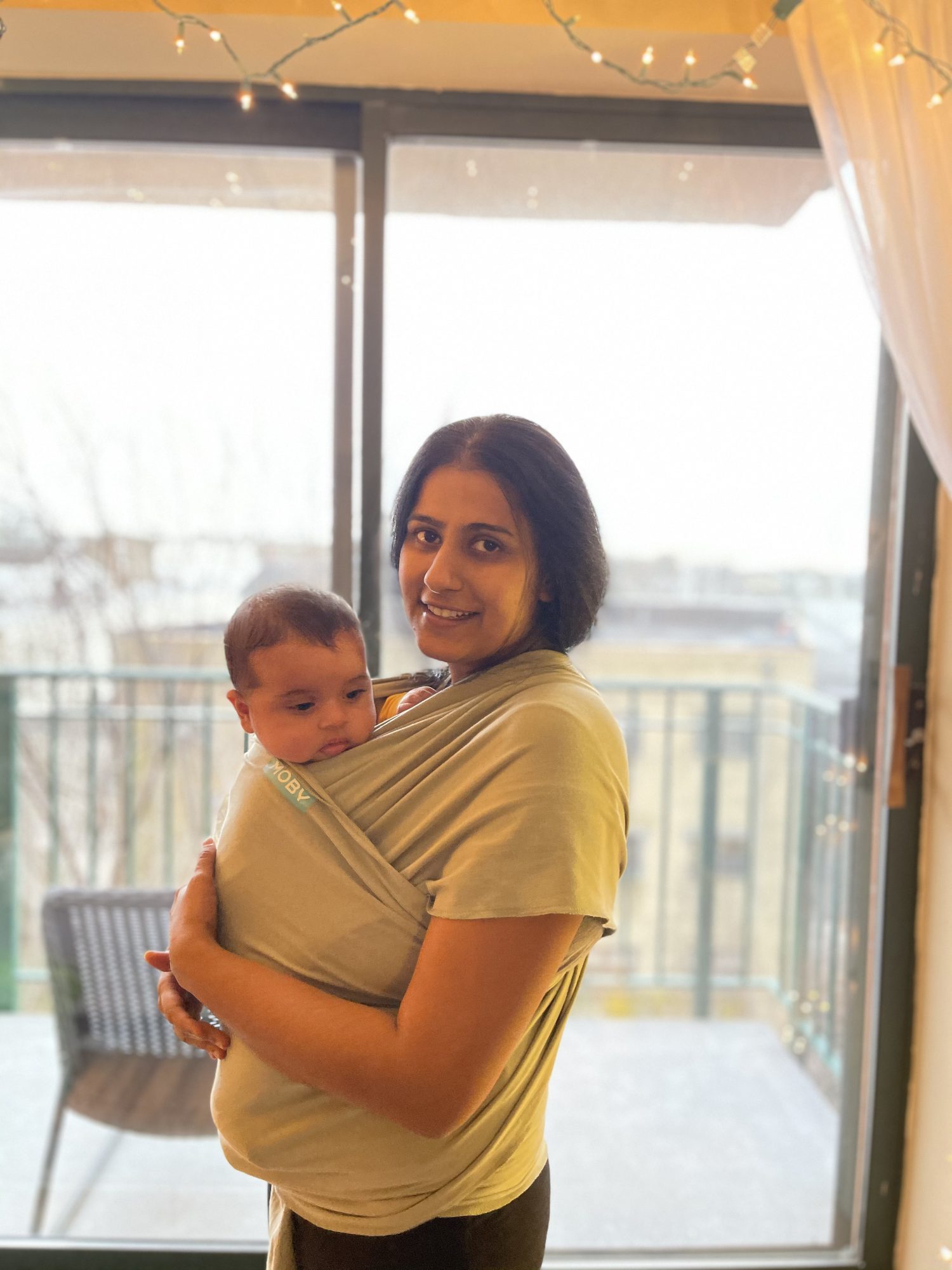
We were given a leaflet about “shaken baby syndrome” at the hospital when my baby was born. It is where a caregiver shakes a crying baby out of frustration and causes a brain injury in the process. “Who will be crazy enough to shake a baby so hard to cause brain injury?” I thought to myself. I threw the pamphlet in my bag mindlessly, assuming this was one of the overprotective measures hospitals take to ensure people don’t do dumb stuff.
Exactly four months later, in the middle of the night, I sat in my bed with my eyes half open, my ears ringing from the incessant crying, my head in the grip of pain, and my nipples bleeding. My arms were numb from hours of bouncing my baby, and my back was killing me from hours and hours of standing folded over his crib.
It had been a month from hell with my baby waking up every 30-45 minutes through the night, which usually ended up in me giving up any attempt to sleep by 5 a.m. I was running on an hour of consecutive sleep for weeks. After hours of walking the hall, he finally fell asleep. I spent 15 minutes figuring out how to put him down without waking him up so I could go pee (I had been holding it for several hours!). But as soon as his head touched the crib, he started wailing again! Not sure if it was my full bladder, my engorged boobs, or my pounding heart, but I felt a wave of rage take me over and reached for him. “WHAT DO YOU WANT?”
My baby got startled and went blank for a few seconds. I am sure my neighbors woke up. As my baby resumed crying with even more vigor, my husband gingerly entered the room to save the day. I quietly handed him the baby.
The shame and guilt immediately engulfed me and did not wash away the anger. Instead, it just added to my already overburdened and weary shoulders.
At that moment, my eyes grazed over the same pamphlet from the hospital, sitting on the bedside table with all the postpartum things I never had the time to process. I was humbled and ashamed. Suddenly I understood what parents really go through and how parenting is sometimes the literal exercise in testing human limits.
I did not shake my baby that day. I did not hurt him. But the reality is that I did scare the living daylights out of my four-month-old infant, who I claim to love more than anything in the world. I did hurt him emotionally!
It’s hard to write this. It hurts to admit this to myself, let alone to the World Wide Web. But for this month of Mental Health Awareness, I am taking the opportunity to step out of guilt and into the realities of motherhood. I struggled postpartum.
I grew resentful of my husband, who was trying desperately to help me. My anxiety about the baby’s sleep kept me up even when the baby slept for those precious 45 minutes. When every sleep calendar, every sleep sack, and lotion failed to keep him sleeping for more than an hour, my anxiety always found a way to blame my poor husband.
I blamed him for ruining every perfect plan I had for my postpartum. Baby not sleeping? His fault. Breastfeeding challenges? His fault. Ear infections? His fault. He was the perfect scapegoat for all the resentment I had in my life of what I thought in my head was an ultimate motherhood failure.
As if hating my husband and precious baby wasn’t enough, I hated myself.
Specifically, I hated my postpartum body. It feels bizarre to say this because my job as a postpartum PT is to teach women to appreciate their bodies. But loving your postpartum body is a true exercise in self-love. It is a body that doesn’t look or function like you have always known, a body that leaks from different places, and a body that is constantly touched for everyone’s needs when all it wants is to be left alone and hide away forever. I did not feel any maternal bonding in breastfeeding. And I hated what it did to my body. I hated every bit of my body and every piece of clothing I owned. I hated looking in the mirror or taking a shower.
After that fateful night of “mum rage” at my baby, I started talking to a therapist. I went into my first appointment convinced I was “just not mom material.” I am in the wrong job (which I can’t quit!). I need a break to figure out how to put myself together and somehow fake my way through this thing. I sobbed like a little girl left behind in school for most of my appointment. He listened keenly and spoke firmly, “You need much more than a break. You need a consistent support system. A nanny, a cook, a family member, or someone to do things around the house so I can sleep during the day. You need to understand that doing everything all the time is simply impossible.”
I also needed to give up the vision of the ideal mother. You have a classic case of “super mom syndrome,” he said. If you do everything perfectly, you think your child will turn out exactly like you want. Society (whose approval you inherently desire) will applaud you for a job well done. But the reality is that motherhood is not defined by society. You do not even define it. It is defined by your child, who will change you and teach you more about being a mother than anyone else can.
Motherhood is not about controlling variables but about learning to adapt to them. One would think that giving birth during the pandemic would’ve taught me something about adaptability, but alas! I was micromanaging where, how much, and when my baby slept, ate, and played, making my (and his probably) life difficult. I would assume the worst possible outcome of every little glitch in our day and spiral down the Google rabbit hole. Instead of listening to my sweet baby’s cues and trusting my gut, I felt the pervasive urge to “fix” him.
Whether it was due to hormones, exhaustion, sleep deprivation, or COVID-induced isolation, postpartum anxiety made me feel like the worst mother possible daily.
Getting therapy was one of the best things I’ve ever done for myself (and my family). It changed my perspective on “perfection” and exposed all the emotional toxicity that it stems from.
Motherhood is often the most profound, most important thing we will ever do. It’s the one thing we don’t want to fail at or make mistakes with. We have internalized the picture of a perfect mom that society portrays, and even if we chuckle at her description and say, “Not me,” most of us are still subconsciously reaching for the mythical figure.
Society chips away at mothers’ self-esteem and identity at every age and stage of a child’s life. A support system barely exists to support the mothers, and any woman asking for help is singled out at workplaces as the one “not keeping it together.” Our healthcare system abandons us after one single 6-week check-up visit. With 1 in 4 women returning to work within two weeks of giving birth, it is surprising that maternal mood disorders are at an all-time high of 30’% (and likely underreported due to the stigma of asking for help).
The month of May is known for Mother’s Day. There are Mother’s Day offers, cards, celebrations, and photoshoots everywhere you look. But May is also Mental Health Awareness Month.
Mental health awareness and support is probably one of the most important things mothers need.
In the last two years, every time I have gathered enough courage to confide in another mom about my “mum rage” that night, she has assured me that I am not alone. Motherhood is a relentless erosion of tenacity. Mental health challenges often indicate that we are scraping the very bottom of our limits.
To the mama who is reading this, if you’re struggling to feel “motherly,” if you feel like you’re barely holding it together, if you think that running in survival mode day after day makes you a bad mom, or if the pressure to keep it all together has you feeling rage, know that you are a GOOD MOM.




















